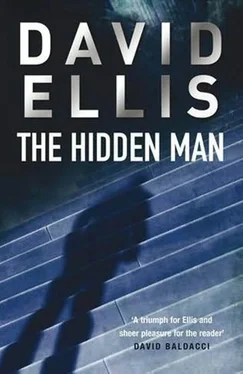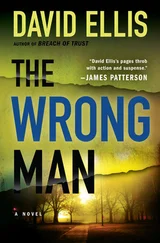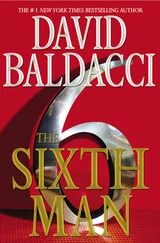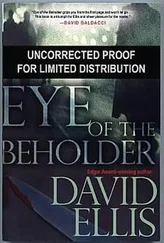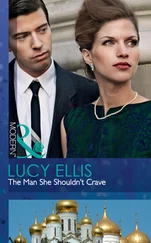“I think he did,” she agreed.
They were talking about Archie Novotny, father of the other victim in that park district summer program. Perlini was convicted of crimes against both the Drury and Novotny daughters in the same trial. Archie was next on my list.
“I know of five victims, not counting the bodies discovered at the school,” I said. “There was Sammy’s sister, though he wasn’t convicted of that crime. Your daughter and Jody Novotny were the two involving actual-actual contact. There were two girls earlier in time, in the late seventies, but as I understand it, it was just lewd exposure. There was no physical contact.”
“That’s my understanding as well,” said Robert.
And those victims-well, their families had had plenty of opportunities to kill Griffin Perlini before he was charged with the Drury and Novotny abuse. I could think of no particular reason that those two families would suddenly seek vengeance, so much later in time, when they didn’t feel the need earlier.
And I didn’t see the Drurys as plausible suspects. No chance.
That left me with only one other possibility-my next stop, Archie Novotny.
SOMEWHERE IN TIME after his daughter was molested by Griffin Perlini, Archie Novotny had moved to Marion Park, a southwest suburb. As I drove through MP, I noted the difference in the town since I’d last visited during my childhood. The Latino influence, nearly nonexistent during my youth, was obvious from the storefront signs and billboards. The gangs had moved in, too, something I knew full well from my time as a prosecutor. The rise in crime notwithstanding, what remained of the middle class still found Marion Park a nice enclave just outside the city proper.
Archie Novotny lived in the older part of town, the smaller homes bunched together on streets bordered by cul-de-sacs. The realtors would say that the circular blocks of concrete at the end of each block promoted slower vehicles, safer for children to ride their bikes and play in their streets. The truth was, their purpose was to discourage drive-by shootings.
It was near six o’clock now, and I needed to get back to the office with Shauna’s car, so she could leave work, and so I could leave in my own car. The later in the day it got, the more Smith’s people might come to realize they’d been blown off. It was important that they think their surveillance was working just fine.
I rang the doorbell and stood, bouncing on my toes, on the front porch.
“Door’s open!” called a voice from inside.
It felt like old times, a different era, when people kept their doors unlocked and invited people in, sight unseen.
I opened the door and stood at the threshold on a dingy black-and-white tile floor. “Mr. Novotny, it’s Jason Kolarich.” I closed the door behind me. To my left was a winding staircase. Straight ahead were a hallway and a small room. To my right was a coat closet, open, with a full rack of coats and windbreakers, caps and mittens and scarves on a top shelf, boots and shoes on the floor.
“Call me Archie,” said the voice.
Okay, Archie, but I wasn’t going to head upstairs without an invitation.
I waited a good five minutes, enjoying the comparative warmth of the home. Finally, a man bounced down a few stairs into my view.
“Come on up, Jason.”
My first take on the guy, wearing a flannel and cords, was Paul Bunyan on Social Security. I made it up the stairs to the second level-the living room and kitchen, finished hardwood, green furniture, and small windows-and found Novotny in the corner of the room, unplugging a floor sander.
“Put in the hardwood last week,” he told me, brushing dust from his hands. “Got a little extra time on my hands these days.” Novotny was a union guy, a painter with the electric utility.
“Hard finding work?”
“Has been, lately. Yeah. Working at Home Depot in between jobs.” He nodded to the corner. “They let me steal the sander for the week.”
I took a seat across from him and adjusted my initial impression. He had an outdoorsman’s face, weathered and rugged, matching his large hands. I figured mid-fifties. He looked like a guy who used to be powerful and who had finally softened physically but not mentally. He looked me square in the eye, a hint of amusement in his expression.
“Can I do you for?” he asked. “A lawyer wants to talk to you, your mind runs wild.”
“Sure, sure.” I raised a hand. “Archie, I represent Sammy Cutler.”
He didn’t look surprised. “Sure, Sammy. Heard about what happened. He gonna be okay, you think?”
“I hope. I’m doing everything I can.”
He seemed to be sizing me up. “Including talking to me.”
I smiled at him.
“Why?” he asked. “You want me to tell the jury that Griffin Perlini was a sick, low-life piece of garbage? That he deserved what he got?”
Everything about him changed in an instant, the heat to his face, the clenched fists, the stiffening of his shoulders. My radar was inconclusive at this point. If a guy had molested my daughter, I don’t care how much time had passed, it would light a fire in me.
“Name the time and the place, if that’s what you want,” he said.
This felt promising. Something made me think I needed to prompt him.
“You testified at the parole hearing,” I said. I wasn’t sure about that but the Drurys had thought so, and it seemed a better idea to state it as a fact. A trick we learned as prosecutors, when interrogating witnesses.
“I sure as hell did. They gave him twenty-five and he shoulda served twenty-five.”
I’d need to get a transcript of that parole board hearing. Again, for now, I’d bluff.
“You spoke in very strong terms,” I said.
He played with that for a while, rubbing his hands together, clenching his jaw. “My daughter cried herself to sleep for years afterward. You know what that’s like? Jody couldn’t sleep in the dark. Ten years later, she was still having nightmares. You know what you do as a parent? Are you a parent?”
I choked on that one. I went with “No.”
“Well, you will be. Your job is to protect the innocence of your child for as long as you can. And this man-this monster-he stole her innocence at the age of seven. She never got a childhood.”
“I under-”
“My wife died, three years after this happened. Did you know that?”
“No,” I said.
“Jody was having night terrors, she couldn’t make friends, she was always crying, and my wife died thinking that this was all Jody would become.”
I didn’t answer. I was trying to keep this on a clinical level. I was trying to see if this was my guy. I’d come to one conclusion already-I might be able to sell him as a suspect to the jury. But I hadn’t yet decided if I could take the route, adding insult to deep, deep injury.
Was this guy working with Smith?
“Hey,” he said.
I looked up at him.
“Why you asking about me testifying before the parole board?”
I shrugged my shoulders. “Trying to get my arms around the entire landscape here.”
“That sounds like something a lawyer would say when he doesn’t want to answer the question. The landscape.” He leaned in toward me. “You investigating me ?”
“Should I be?” I always loved that question. But it moved the conversation in a different direction. Now I was confronting him.
He squinted at me. He had a pretty good poker face. He didn’t reveal much of anything. I figured he was running through his options. He could tell me to take a leap and kick me out of his house, but he was smart enough to realize that such a response would only pique my interest. More likely, he would take the common route of anyone cornered-he’d try to talk his way out of it. That’s an option I always encouraged as a prosecutor and strongly discouraged as a defense lawyer. It’s the human impulse to defend yourself, but often you just dig a deeper hole.
Читать дальше
